miragem - kinematic arts in the landscape 2022
The 3rd edition of miragem – kinematic arts in the landscape takes place from the 3rd to 10th of September 2022, on the island of Pico, Azores and includes projections of films on a screen installed on different landscapes of the island, outdoors, as well as a set of creative workshops that not only inform the cycle of films to be screened, but also establish a link between the program and the local natural and cultural context.The program proposed by Miragem for the 2022 edition seeks to focus on the questions raised by sound in relation to the moving image, as well as musicology in this same context. In an approximation of the moving image to the most experienced artistic practice on the island of Pico – music -, each session seeks to frame the different specificities of sound work in relation to images. From sound as a mechanism of narrative construction to work songs; from the imaginary sound of the vibrant matter of the volcanic earth, to the silent film that now finds the sounds of the surroundings of this screen installed in the landscape. A programme that proposes an approach to nature in a sensitive way, relating its various forms of expression to the complexity of human emotions and cultural and political processes, with a focus on the role of sound and music in those same processes.
Programme
05/09/22
21h30 | Mata dos Dragoeiros
- Luz, Clarão, Fulgor - Augúrios para um Enquadramento Não Hierárquico e Venturoso, by Sílvia das Fadas
*film-performance in 16mm with live music by Robert Blatt
06/09/2022
21h30 | Fonte da Silveira
- A Casa, A Verdadeira E A Seguinte, Ainda Está Por Fazer , by Sílvia das Fadas
- ¿Qué Es Para Usted La Poesía?, byCecília Vicuña
- Ty Ty - Memórias De Beija Flor, by Denilson Baniwa
07/09/22
21h30 | Cabrito
- Moon´s Pool, by Gunvor Nelson
- Merapi, by Malena Szlam
- Montañas Ardientes Que Vomitan Fuego, by Helena Girón and Samuel M. Delgado
- Irmandade, by Helena Girón and Samuel M. Delgado
- results from Todas as células da terra e do corpo vibram, workshop with Helena Girón and Samuel M. Delgado - collective performance
08/09/22
21h30 | Fogos - parque de lazer
- Think About Wood, Think About Metal, by Manon de Boer
| - Notes From Light Music, by Lis Rhodes |
09/09/22
21h30 | Baía de Canas
- A Historical Sketch Of Indian Women, by Mani Kaul
- Working Songs - Sugar Cane, by Leon Hirszman
- Pedreira de São Diogo, by Leon Hirszman
- Nelson Cavaquinho, by Leon Hirszman
10/09/22
21h30 | Maré das Lajes do Pico
- Moldar o Eco, workshop with João Polido results’ presentation with collective performance
- Polifonias – Paci È Saluta, Michel Giacometti, by Piere-Marie Goulet + presentation with Teresa Garcia
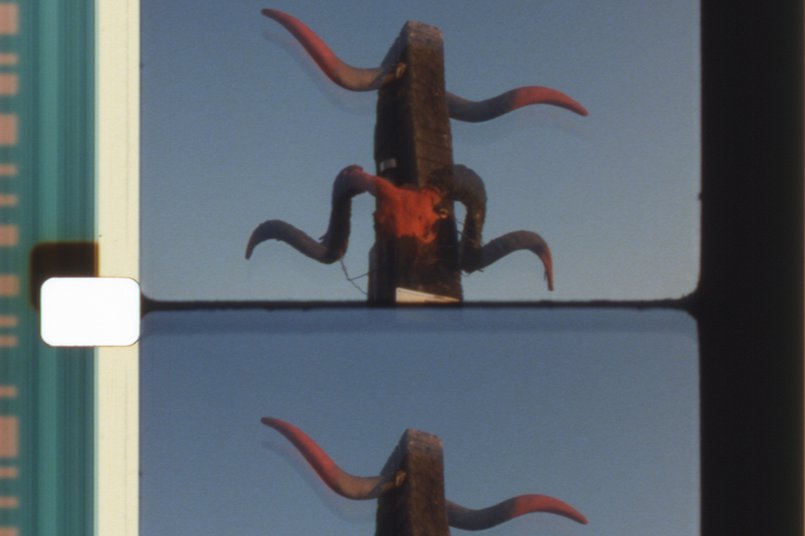
Luz, Clarão, Fulgor - Augúrios Para Um Enquadramento Não- Hierárquico e VenturosoSílvia das Fadas, 2022
Stubbornly looking at the ruins of a commune I search for augurs. For instance: “Fair weather for drifters.” I wander by foot across times, erratically shooting images and recording sounds through the kaleidoscopic spatiality of Alentejo, a region named after a river, beyond a river. As walking offers unexpected encounters and co-presences, missives are sent to and from the margins. For instance: “growing organs for the alternative.” My senses are partial, precarious and fragmentary, but not my orientation: There is an everyday struggle for the fulgor being fought and I want to be in it. Against a firmament of dispossession of land, bodies and social bonds, we are getting ready. For instance: “On the level!” The fulgor is mobile, the prefigured community dispersed and diverse. Through dissent and associations of affinity, autonomy and re-enchantment, the offer of cinema could be to let us flourish on non-hierarchical frames.” - S.F.
Stubbornly looking at the ruins of a commune I search for augurs. For instance: “Fair weather for drifters.” I wander by foot across times, erratically shooting images and recording sounds through the kaleidoscopic spatiality of Alentejo, a region named after a river, beyond a river. As walking offers unexpected encounters and co-presences, missives are sent to and from the margins. For instance: “growing organs for the alternative.” My senses are partial, precarious and fragmentary, but not my orientation: There is an everyday struggle for the fulgor being fought and I want to be in it. Against a firmament of dispossession of land, bodies and social bonds, we are getting ready. For instance: “On the level!” The fulgor is mobile, the prefigured community dispersed and diverse. Through dissent and associations of affinity, autonomy and re-enchantment, the offer of cinema could be to let us flourish on non-hierarchical frames.” - S.F.

A Casa, A Verdadeira E A Seguinte, Ainda Está Por FazerSílvia das Fadas, 2019
A travelogue to places that were created under a utopian impulse and which defy the surface of the world. In order of appearance: an ideal palace built by a postman after each of his daily rounds; a red house designed by a socialist agitator; a pacifist tower erected against the movements of History; an exuberant garden engendered in the feminine; and a merry cemetery, which conjures a community of equals in the outskirts of Europe. To ensure we risk our joy for those who act in their own time.
A travelogue to places that were created under a utopian impulse and which defy the surface of the world. In order of appearance: an ideal palace built by a postman after each of his daily rounds; a red house designed by a socialist agitator; a pacifist tower erected against the movements of History; an exuberant garden engendered in the feminine; and a merry cemetery, which conjures a community of equals in the outskirts of Europe. To ensure we risk our joy for those who act in their own time.

¿Qué Es Para Usted La Poesía?
Cecília Vicuña, 1980
Chilean artist and poet Cecilia Vicuña asks beggars, prostitutes, policemen, and passers by “What is poetry to you?” The answers she gets reveal the richness of the oral culture in Bogotá, Colombia.
Cecília Vicuña, 1980
Chilean artist and poet Cecilia Vicuña asks beggars, prostitutes, policemen, and passers by “What is poetry to you?” The answers she gets reveal the richness of the oral culture in Bogotá, Colombia.

Ty Ty - Memórias De Beija FlorDenilson Baniwa, 2021
In this film, I talk about the bookshop, and what is the bookshop? Nothing but a big forest turned into stories, the books are parts of trees. The leaves of the trees, the pages of the books. And the book is the bark of the tree transformed into stories that enchant us, that touch us, that we share, from which we learn. And for bookshops and fiction to exist, we need trees. The possibility of reforesting so that our stories remain free. We still need what is natural. To become more like trees. To pick up a book and read under a tree. Learn from trees.
In this film, I talk about the bookshop, and what is the bookshop? Nothing but a big forest turned into stories, the books are parts of trees. The leaves of the trees, the pages of the books. And the book is the bark of the tree transformed into stories that enchant us, that touch us, that we share, from which we learn. And for bookshops and fiction to exist, we need trees. The possibility of reforesting so that our stories remain free. We still need what is natural. To become more like trees. To pick up a book and read under a tree. Learn from trees.
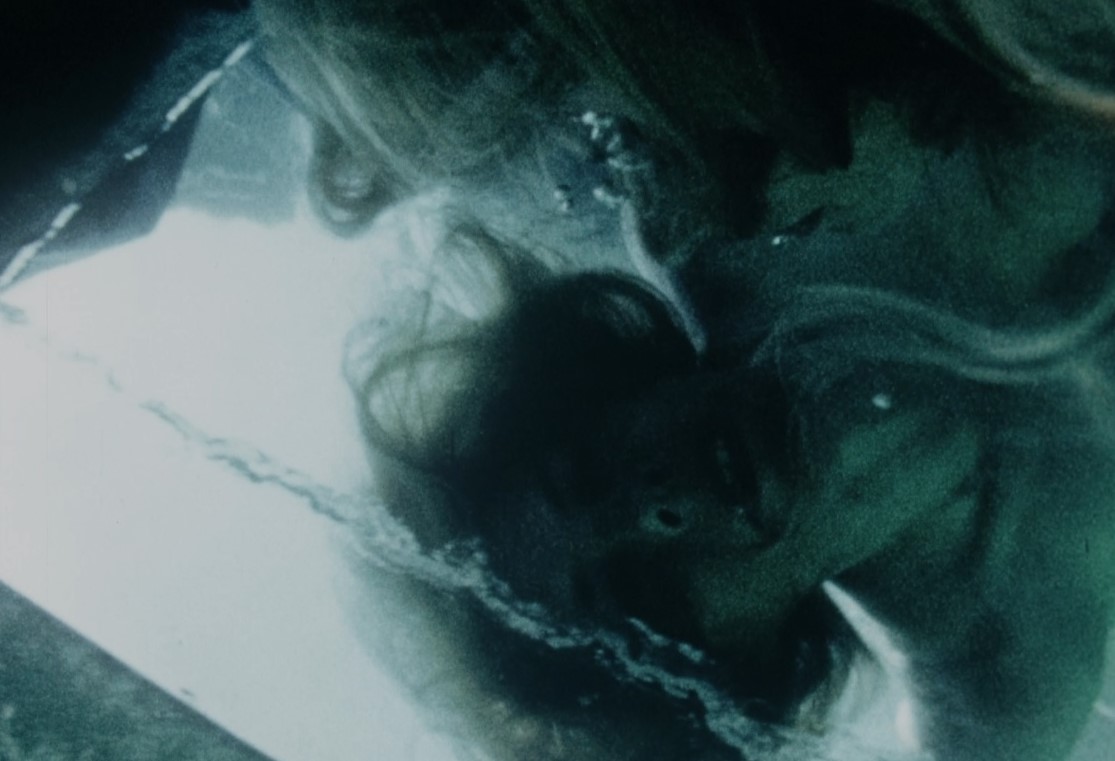
Moon’s PoolGunvor Nelson, 1973
Moon’s Pool starts from a lyrical use of film and spoken word to portray the search for the resolution of the self. Filmed underwater, the living bodies blend with natural landscapes, with the eruption of a volcano, with the burning lava, appealing to the image that inhabitants the unconscious. The language that reaches us in form of an enchanted song from the depths of the water is never translated, so that, in the words of Gunvor Nelson, it reaches us in an onomastopoeic way.
Moon’s Pool starts from a lyrical use of film and spoken word to portray the search for the resolution of the self. Filmed underwater, the living bodies blend with natural landscapes, with the eruption of a volcano, with the burning lava, appealing to the image that inhabitants the unconscious. The language that reaches us in form of an enchanted song from the depths of the water is never translated, so that, in the words of Gunvor Nelson, it reaches us in an onomastopoeic way.
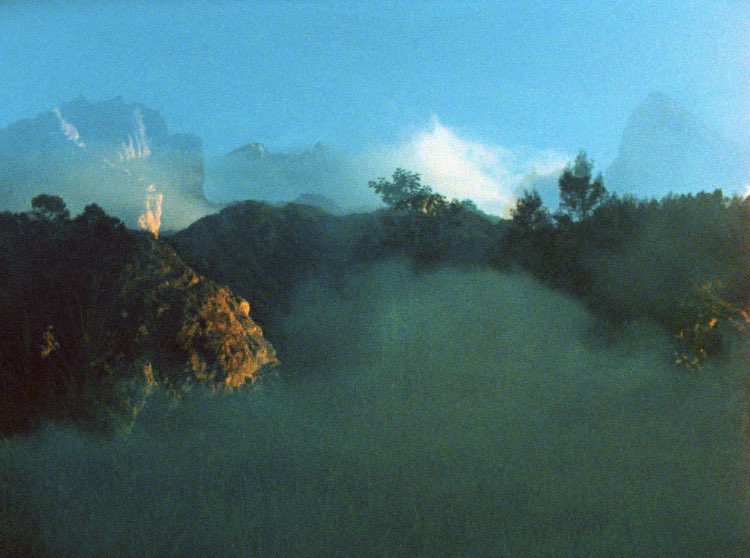
Merapi
Malena Szlam 2021
A circumlocutory study of Mount Merapi, Indonesia. Shifting back and forth around the volcano, MERAPI is marked by the silent presence of its rumble and lava. Almost always at the centre, the volcano often slips away behind the clouds, a ghost. The work is silently structured around the rippling impression of the volcano on its surrounds: smoke through trees, the breaking of rain against its slopes and the rich fertility of its soils. A work as sensitive to the shift in light through swirls of 16mm grain and atmosphere as it is to what it is like to live within the horizon of the volcano, located near the densely populated Yogyakarta.
Malena Szlam 2021
A circumlocutory study of Mount Merapi, Indonesia. Shifting back and forth around the volcano, MERAPI is marked by the silent presence of its rumble and lava. Almost always at the centre, the volcano often slips away behind the clouds, a ghost. The work is silently structured around the rippling impression of the volcano on its surrounds: smoke through trees, the breaking of rain against its slopes and the rich fertility of its soils. A work as sensitive to the shift in light through swirls of 16mm grain and atmosphere as it is to what it is like to live within the horizon of the volcano, located near the densely populated Yogyakarta.

Montañas Ardientes Que Vomitan FuegoHelena Girón e Samuel M. Delgado, 2016
The interior of the earth became a refuge from the threat that moved closer and closer to the island. The volcanic tubes served as communication vessels between time and space. This was where they experimented their resistance.
The interior of the earth became a refuge from the threat that moved closer and closer to the island. The volcanic tubes served as communication vessels between time and space. This was where they experimented their resistance.

Irmandade
Helena Girón e Samuel M. Delgado, 2019
A Irmandade of ghosts hides beneath the layers of time. Through Vasco da Ponte’s illustrated manuscripts, we search for a mythical past: one that resonates in a subterraneous form amongst a landscape full of invisible presences that are activated and take on a life of their own each time we think about them. The Irmandiña revolt - a mass peasant uprising that took place in Galicia during the XV century - preceded many of the uprisings that spread throughout Europe at the dawn of modernity. In Narahío we search for the vestiges of this community of dissidents. The river Castro, located beneath the fortress of the Andrade destroyed and then rebuilt again to punish the locals who participated in the uprising- serves as a conduit, activating the vestiges of this distant time, a time full of uncertainty. Beneath the riverbed the fire continues burning. Using long exposures, with a handheld camera our movements fuse with those of the subjects of the portraits, generating a liquid and changing magma that advances with each vibration. The soundscape is composed by field recordings that includes hydrophone recordings in river Castro.
Helena Girón e Samuel M. Delgado, 2019
A Irmandade of ghosts hides beneath the layers of time. Through Vasco da Ponte’s illustrated manuscripts, we search for a mythical past: one that resonates in a subterraneous form amongst a landscape full of invisible presences that are activated and take on a life of their own each time we think about them. The Irmandiña revolt - a mass peasant uprising that took place in Galicia during the XV century - preceded many of the uprisings that spread throughout Europe at the dawn of modernity. In Narahío we search for the vestiges of this community of dissidents. The river Castro, located beneath the fortress of the Andrade destroyed and then rebuilt again to punish the locals who participated in the uprising- serves as a conduit, activating the vestiges of this distant time, a time full of uncertainty. Beneath the riverbed the fire continues burning. Using long exposures, with a handheld camera our movements fuse with those of the subjects of the portraits, generating a liquid and changing magma that advances with each vibration. The soundscape is composed by field recordings that includes hydrophone recordings in river Castro.
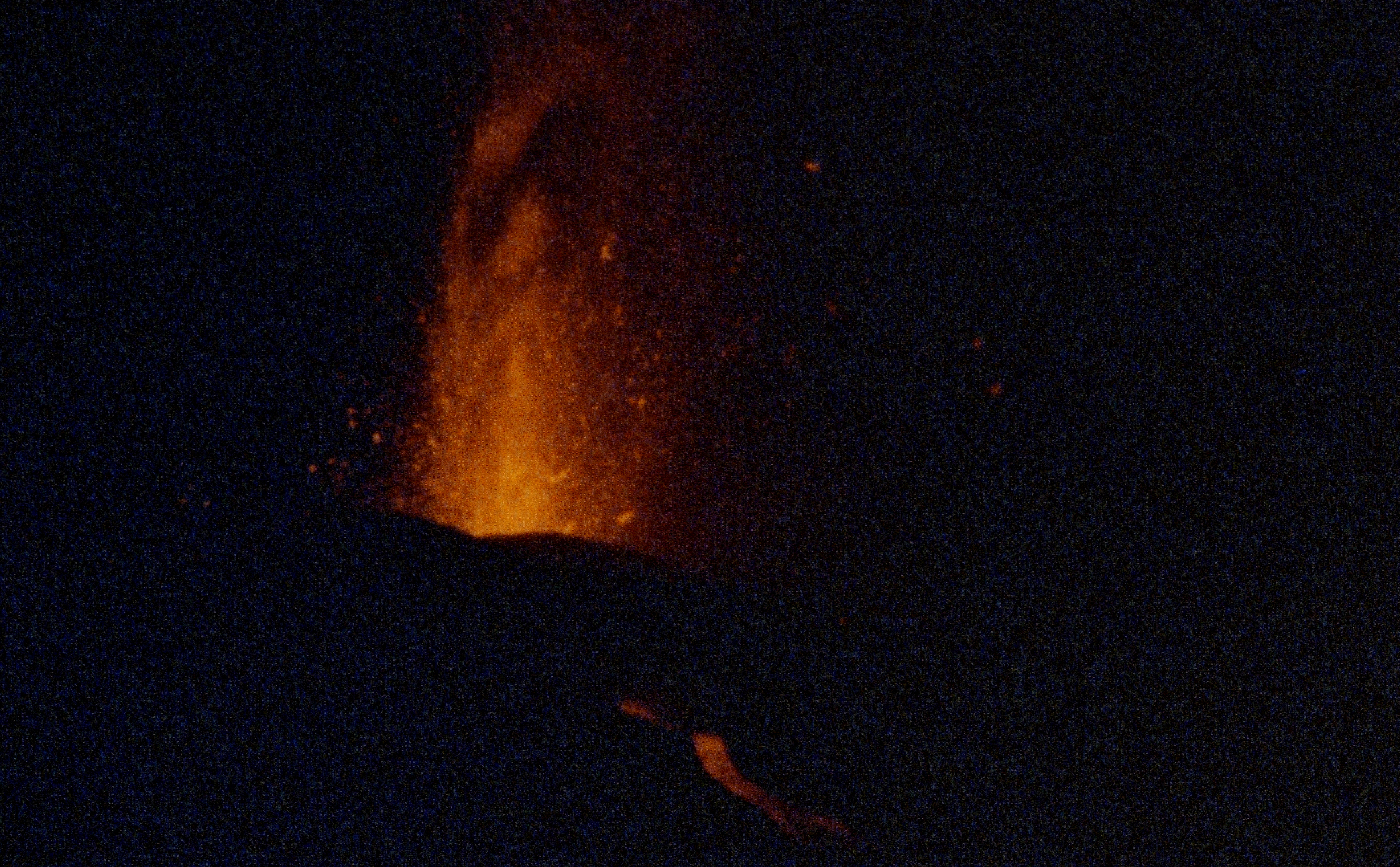
Todas As Células Da Terra E Do Corpo Vibram
performance colectiva
In Todas as células da terra e do corpo vibram, the soundscape of Pico Island is explored, generating a sound memory of the surroundings through active listening and field recordings of the island’s own territory. Pico shares with the Canary Islands, the focus of these filmmakers' work, some natural features, such as its volcanic origin. This connection unites them through the abyssal memory that holds the minerals that make up these islands. Seeking to articulate a possible connection between these territories through hearing and vision, the people who participate in the workshop will learn techniques of sound recording in the field, and become familiar with the projection of a 16mm film, with the purpose of performing a collective performance that involves them in the elaboration of a cinematic experience where a ritual of light and sound immersion is invoked over the territory. The images used for the 16 mm performance and to be accompanied by the sound of the sound recordings on the island of Pico will be film footage shot by the invited artists during the eruptions of the volcano of La Palma, establishing a relationship between the two volcanic territories.
performance colectiva
In Todas as células da terra e do corpo vibram, the soundscape of Pico Island is explored, generating a sound memory of the surroundings through active listening and field recordings of the island’s own territory. Pico shares with the Canary Islands, the focus of these filmmakers' work, some natural features, such as its volcanic origin. This connection unites them through the abyssal memory that holds the minerals that make up these islands. Seeking to articulate a possible connection between these territories through hearing and vision, the people who participate in the workshop will learn techniques of sound recording in the field, and become familiar with the projection of a 16mm film, with the purpose of performing a collective performance that involves them in the elaboration of a cinematic experience where a ritual of light and sound immersion is invoked over the territory. The images used for the 16 mm performance and to be accompanied by the sound of the sound recordings on the island of Pico will be film footage shot by the invited artists during the eruptions of the volcano of La Palma, establishing a relationship between the two volcanic territories.
.

Think About Wood, Think About MetalManon de Boer, 2011
Think About Wood, Think About Metal is a third portrait of a trilogy, whose other two titles are Sylvia Kristel – Paris (2003) and Ressonating Surfaces (2005). In each film we discover the portrait of a different woman and here Manon de Boer takes us to meet percussionist Robyn Schulkowsky. A poetic portrait of Robyn Schulkowsky, who has worked with John Cage, Karlheinz Stockhausen, John Zorn and Christian Wolff. Her percussion improvisations occupy a large part in the film. Rhythm and the non-linear structuring of time play a major part, with the focus also on more abstract notions such as memory, history and life.
Think About Wood, Think About Metal is a third portrait of a trilogy, whose other two titles are Sylvia Kristel – Paris (2003) and Ressonating Surfaces (2005). In each film we discover the portrait of a different woman and here Manon de Boer takes us to meet percussionist Robyn Schulkowsky. A poetic portrait of Robyn Schulkowsky, who has worked with John Cage, Karlheinz Stockhausen, John Zorn and Christian Wolff. Her percussion improvisations occupy a large part in the film. Rhythm and the non-linear structuring of time play a major part, with the focus also on more abstract notions such as memory, history and life.
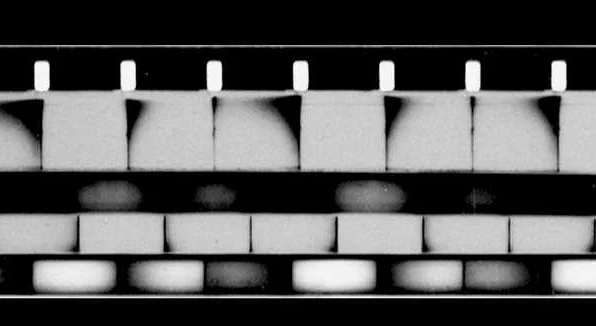
Notes From Light Music
Lis Rhodes, 1975
Uma versão comprimida, de ecrã único, da famosa fusão de som e imagem de Lis Rhodes. Light Music foi mostrada num formato de ecrã único de 16 mm, em 1976. Esta versão é uma tradução digital. A 'partitura' está dividida em cinco movimentos que se caracterizam pela sua diferente duração, tom e acentuação dos sons.
Lis Rhodes, 1975
Uma versão comprimida, de ecrã único, da famosa fusão de som e imagem de Lis Rhodes. Light Music foi mostrada num formato de ecrã único de 16 mm, em 1976. Esta versão é uma tradução digital. A 'partitura' está dividida em cinco movimentos que se caracterizam pela sua diferente duração, tom e acentuação dos sons.
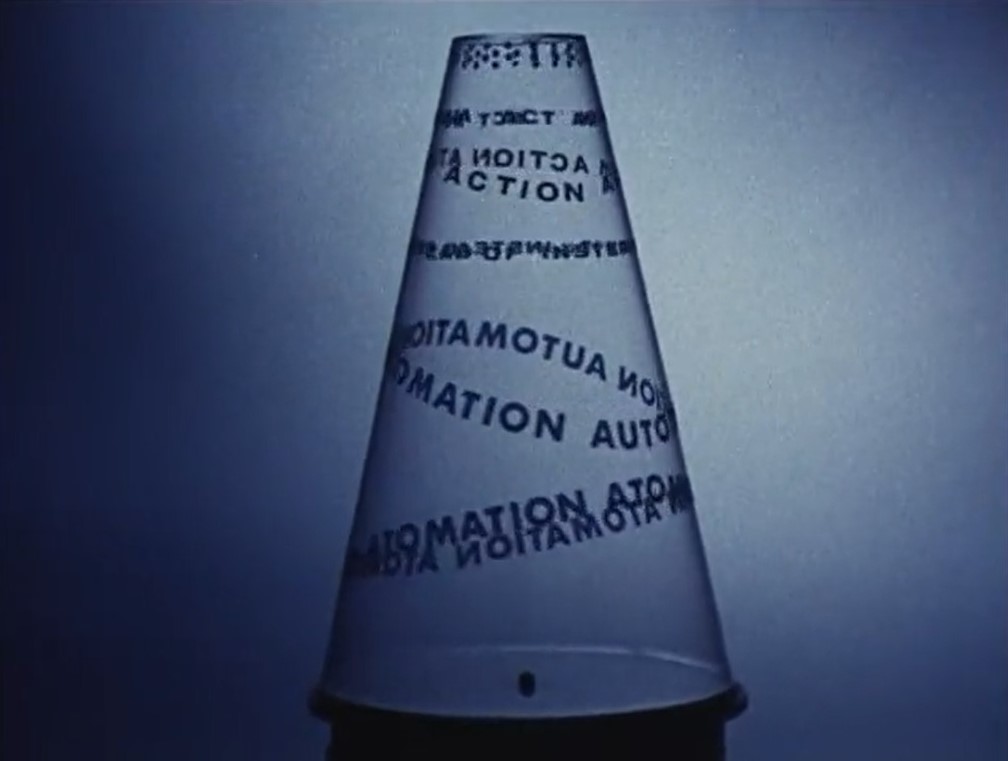
What Is The Sound Of One Hand Clapping?
Liliane Lijn, 1974
This is a Koan film. The title is taken from a Japanese koan , which is a zen meditation problem. The film concentrates on a series of conical sculptures which were objects for meditation or how to empty the mind. I related this problem to the spacial problem of how to dematerialise a volume into vibration.
This is a Koan film. The title is taken from a Japanese koan , which is a zen meditation problem. The film concentrates on a series of conical sculptures which were objects for meditation or how to empty the mind. I related this problem to the spacial problem of how to dematerialise a volume into vibration.

A Historical Sketch Of Indian Women
Mani Kaul, 1975
In this documentary that focuses on the role of women in India of 1975, we feel the echoes of that time to our days. From reproductive rights issues to the role of women at work, we briefly watch a group of women singing as they harvest rice.
Mani Kaul, 1975
In this documentary that focuses on the role of women in India of 1975, we feel the echoes of that time to our days. From reproductive rights issues to the role of women at work, we briefly watch a group of women singing as they harvest rice.

Cantos De Trabalho – Cana-De-Açúcar
Leon Hirszman, 1974-1976
At the same time that they transform nature, certain human activities, due to their seasonal nature, create cultural and artistic manifestations that are very particular for their dimension and rhythm. Leon Hirszman records, in the region of Feira de Santana, Bahia, the songs of the sugar cane workers.
Leon Hirszman, 1974-1976
At the same time that they transform nature, certain human activities, due to their seasonal nature, create cultural and artistic manifestations that are very particular for their dimension and rhythm. Leon Hirszman records, in the region of Feira de Santana, Bahia, the songs of the sugar cane workers.

Pedreira de São Diogo
Leon Hirszman, 1962
Leon's first film is one of the episodes of the feature film Five Times a Slum, made by the Popular Center of Culture of the Students' Union in the early 1960s. The episode follows the drama lived by the workers of a quarry in Rio de Janeiro, facing the order to intensify the explosions, which would put at risk the population that inhabited the shacks located on top of the hill.
Leon Hirszman, 1962
Leon's first film is one of the episodes of the feature film Five Times a Slum, made by the Popular Center of Culture of the Students' Union in the early 1960s. The episode follows the drama lived by the workers of a quarry in Rio de Janeiro, facing the order to intensify the explosions, which would put at risk the population that inhabited the shacks located on top of the hill.

Nelson Cavaquinho
Leon Hirszman, 1962
The daily life of the samba player Nelson Cavaquinho. His house, his family and his melancholic music in the neighbourhood of Lapa, Rio de Janeiro.
Leon Hirszman, 1962
The daily life of the samba player Nelson Cavaquinho. His house, his family and his melancholic music in the neighbourhood of Lapa, Rio de Janeiro.

Polifonias – Paci È Saluta, Michel Giacometti
Piere-Marie Goulet, 1998
- introduction by Teresa Garcia
A journey through the experience and roots of one of the strongest manifestations of Portuguese popular culture - Alentejo polyphonic singing. Evoking Michel Giacometti (a Corsican ethnomusicologist whose pioneering work in Portugal was decisive for the knowledge and relationship of portuguese people with their traditional music), the film questions the origins of the "cante" in the context of Mediterranean culture, confronting it namely with the polyphonic tradition of Corsica. Opposing a descriptive documentary, this is, above all, a film of complicities and encounters, and about the admirable experience of singing as an encounter, as it has rarely been filmed.
Piere-Marie Goulet, 1998
- introduction by Teresa Garcia
A journey through the experience and roots of one of the strongest manifestations of Portuguese popular culture - Alentejo polyphonic singing. Evoking Michel Giacometti (a Corsican ethnomusicologist whose pioneering work in Portugal was decisive for the knowledge and relationship of portuguese people with their traditional music), the film questions the origins of the "cante" in the context of Mediterranean culture, confronting it namely with the polyphonic tradition of Corsica. Opposing a descriptive documentary, this is, above all, a film of complicities and encounters, and about the admirable experience of singing as an encounter, as it has rarely been filmed.

Moldar O Eco
performance colectiva, 2022
To Sculpt The Echo is a workshop directed by musician and composer João Polido to take place within the 2022 edition of Miragem – arte cinemática na paisagem and in partnership with the Centro de Formação Artística do Município da Madalena, the Escola Municipal de Música das Lajes and several Philharmonic Societies of the island. With To Sculpt The Echo, João Polido proposes to look at Cancioneiro Açoriano and from there to ask about alternative musical composition practices, in order to reflect on local and traditional sound materials and repertoires. We intend to approach this repertoire so that it becomes new musical pieces, in an attempt to go beyond a mere representation and repetition of tradition. Following this experimental scheme of musical composition, we look at issues of perception, naturalization of artificial (political) processes in the development of popular traditions and, consecutively, propose collective strategies of self-determination of these same traditions.
performance colectiva, 2022
To Sculpt The Echo is a workshop directed by musician and composer João Polido to take place within the 2022 edition of Miragem – arte cinemática na paisagem and in partnership with the Centro de Formação Artística do Município da Madalena, the Escola Municipal de Música das Lajes and several Philharmonic Societies of the island. With To Sculpt The Echo, João Polido proposes to look at Cancioneiro Açoriano and from there to ask about alternative musical composition practices, in order to reflect on local and traditional sound materials and repertoires. We intend to approach this repertoire so that it becomes new musical pieces, in an attempt to go beyond a mere representation and repetition of tradition. Following this experimental scheme of musical composition, we look at issues of perception, naturalization of artificial (political) processes in the development of popular traditions and, consecutively, propose collective strategies of self-determination of these same traditions.
Workshop #2
To Sculpt The Echowith João Polido
Creative workshop with musician and composer João Polido in partnership with the Artistic Training Center of the Municipality of Madalena, the Municipal School of Music of Lajes and Philharmonic Societies of Pico Island.
To Sculpt The Echo is a workshop directed by musician and composer João Polido to take place within the 2022 edition of Miragem – kinematic arts in the landscape and in partnership with the Centro de Formação Artística do Município da Madalena, the Escola Municipal de Música das Lajes and several Philharmonic Societies of the island. With To Sculpt The Echo, João Polido proposes to look at Cancioneiro Açoriano (Azorean Songbook) and from there to ask about alternative musical composition practices, in order to reflect on local and traditional sound materials and repertoires. To approach this repertoire so that it becomes new musical pieces, in an attempt to go beyond a mere representation and repetition of tradition. Following this experimental scheme of musical composition, issues of perception, naturalization of artificial (political) processes in the development of popular traditions will be looked at and, consecutively, propose collective strategies of self-determination of these same traditions.The music creation work of the workshop is divided into two stages, the first to take place between the 15th and the 20th of August and the second between the 3rd and the 9th of September, with a public presentation of the results of the workshop on the 10th of September at Maré das Lajes do Pico and another one on the 11th at Madalena, both at 8:30pm.
João Polido
João Polido is a composer and artist from Marinha Grande. Lives and works in Lisbon. His performances and presentations include 12a Berlin Bienal - KW Institute for Contemporary Art, 2022 (DE) - Replica Song; SONSBEEK20→24, 2021, Arnhem (NL), Force Times Distance, On Labour And Its Sonic Ecologies, Ledreborg Palace, ANTECHAMBER, Ledreborg 2021 (DK) – live mixing of the multi-chanel sound piece, Throughout a Durational Performance; BoCA – Biennial of Contemporary Arts, CCB – Centro Cultural de Belém, 2021, Lisboa (PT) Overlapses, Riddles & Spells – live music for a performance by Andreia Santana, António Poppe and Vânia Doutel Vaz, Essay; Rádio Quântica, 2021, Lisboa (PT), mix for Leveza radio; MAAT – Museu de Arte, Arquitectura e Tecnologia, 2021, Lisboa (PT) - Água Pública – performance for the programe Vulnerable Beings; RUHR DING, Bochum (DE), 2019, Territorien: Composition.



Workshop #3
All The Earth And Body Cells Vibrate with Helena Girón e Samuel M. Delgado
Creative workshop from the 3rd to the 7th of September, from 2:30pm to 5:30pm, with meeting point at Museu dos Baleeiros. Public presentation of the results on the 7th of September, 9:30pm, with the filmmakers Helena Girón and Samuel M. Delgado, free of charge, open to the general public.
In the creative workshop All the earth and body cells vibrate, the soundscape of Pico Island is explored, generating a sound memory of the surroundings through active listening and field recordings of the island’s own territory. Pico shares with the Canary Islands, the focus of these filmmakers' work, some natural features, such as its volcanic origin. This connection unites them through the abyssal memory that holds the minerals that make up these islands. Seeking to articulate a possible connection between these territories through hearing and vision, the participants in the workshop will learn techniques of sound recording in the field, and become familiar with the projection of a 16mm film, in order to perform a collective performance that involves them in the elaboration of a cinematic experience where a ritual of light and sound immersion is invoked over the territory. The images used for the 16 mm performance, and to be accompanied by the sound of the sound recordings on the island of Pico, will be film footage filmed by the invited artists during the eruptions of the volcano of La Palma in 2021, thus establishing a relationship between the two volcanic territories.
Helena Girón and Samuel M. Delgado
Helena Girón, from Galicia and Samuel M. Delgado, from the Canary Islands, live and work as a duo from Madrid. Their work investigates relationships between mythology, history and materialism. Their first feature film, ElesTransportan a Morte (2021), was screened and awarded at several internationally renowned festivals, such as Venice Festival, Rotterdam IFF, San Sebastián Festival, Cairo Festival, Mar del Plata, Viennale, Hamburg and São Paulo. Their short films have been screened at festivals such as Toronto, Locarno, New York or AnnArbor, among many others. They have produced installations and performances in contemporary art centres such as CCCB (Barcelona), BAM (New York), TEA (Tenerife) and Galeria Solar (Vila do Conde).
